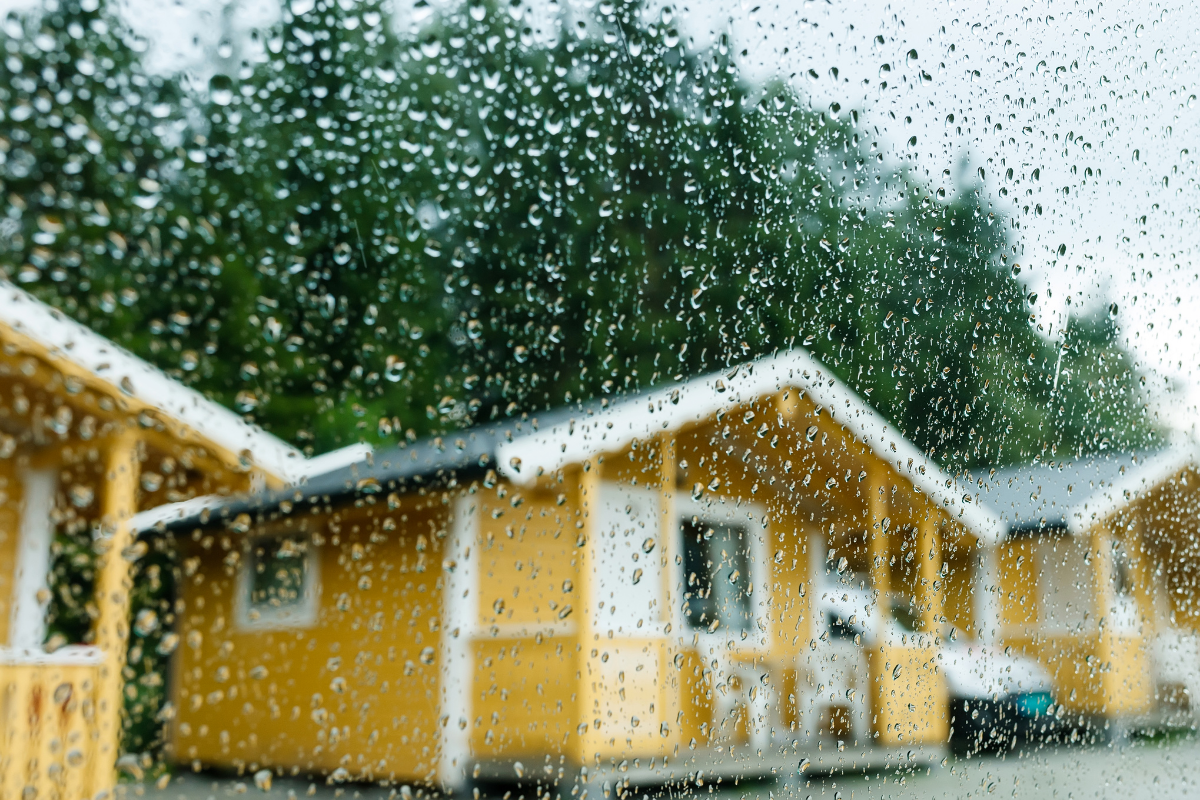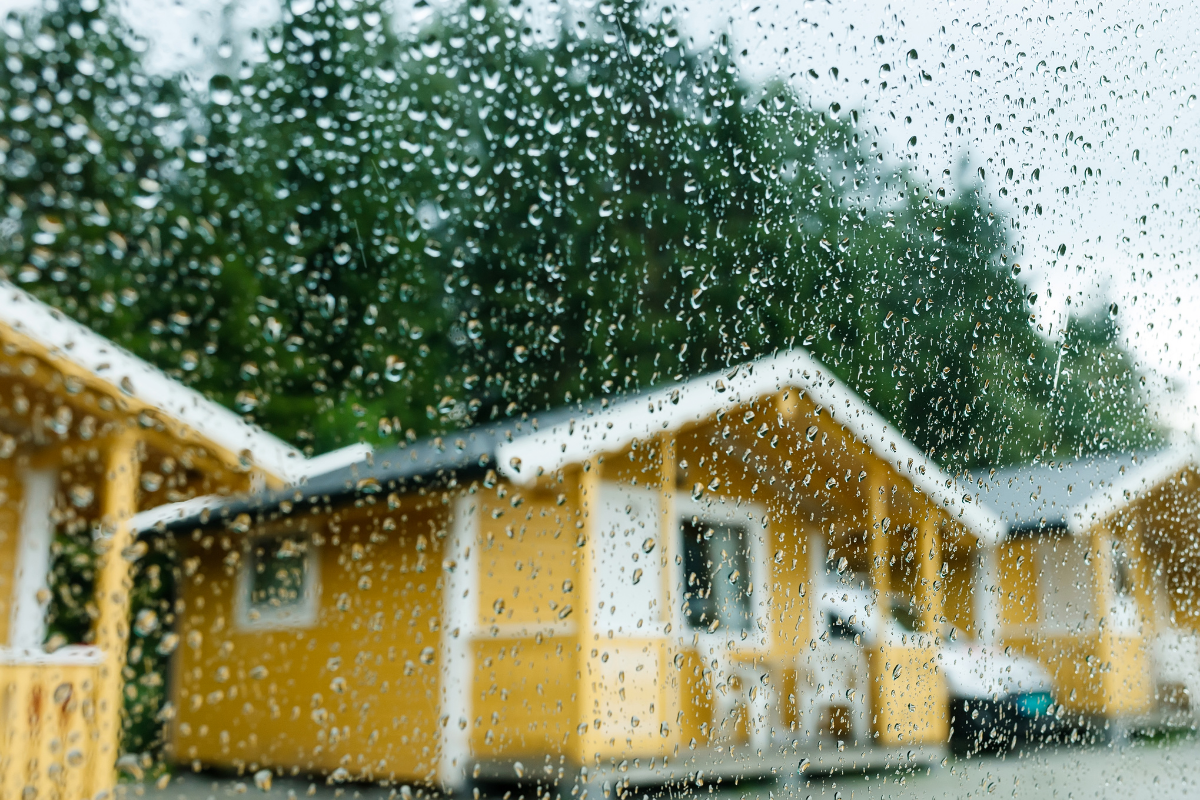
Checklist: Preparing Your Home for the Rainy Season
By: 911 Water Damage Experts
With the rains approaching, it’s essential to ensure that your home is primed to handle the season’s potential challenges.
From leaky roofs to flooded basements, the rainy season can unveil a plethora of issues if you’re not prepared.
This comprehensive guide aims to assist homeowners in adequately preparing their homes for the rainy season, ensuring a safe and cozy environment.
Roof Preparation
Your roof is the first line of defense against the rain, so giving it a thorough check is vital. Start by inspecting for any damaged or missing shingles and tiles. These could lead to leaks if not addressed promptly.
Cleaning out gutters and downspouts can prevent water clogging, which can further lead to roof damage or unwanted water spillage around your home’s foundation. For those with metal roofs, checking for rust and sealing any minor holes is essential.
Always ensure that water flows properly off the roof, avoiding any stagnant pools.
Windows and Doors
During the rainy season, windows and doors become the common culprits for internal water seepage.
Inspect all seals and weatherstripping to ensure they are intact and effectively keeping water out.
Any visible cracks or gaps should be sealed promptly, and it’s important to ensure that all windows and doors shut tightly, leaving no room for rain to sneak in.
Basement and Foundation Checks
The basement and foundation areas are susceptible to water damage, mainly because of their location.
Regularly inspect these regions for any visible cracks. If your home has a sump pump, ensure it’s operational. Using sealants for any minor visible cracks can prevent water intrusion.
Another crucial aspect is to ensure that your home’s surrounding land drains water away from the foundation, preventing potential flooding.
Landscaping and Yard Preparation
A tidy yard is not just aesthetically pleasing but also practical during the rainy season. Clear away any debris, old leaves, or other items that might become waterlogged.
Ensure external faucets are in good condition to avoid any unnecessary water spillage. If you have retaining walls, a quick check can save you from potential landscape disasters. Always make sure your yard slopes away from your home, directing rainwater away from the foundation.
Drainage Systems
Proper drainage during heavy rains is critical. Ensure street gutters near your home are free from debris, allowing free flow of water.
If you have French drains or other underground drainage systems, check them for blockages. Proper drainage can significantly reduce the risk of flooding.
Outdoor Furniture and Equipment
While enjoying a rainy day from the comfort of your home, the last thing you’d want is to see your outdoor furniture being swept away or damaged.
Secure or store outdoor furniture in a covered area. Garden sheds and other structures should also be checked and repaired if necessary.
Any loose items in your yard, like tools or ornaments, should be safely stored away.
Indoor Preparations
The inside of your home needs just as much attention. Look for signs of leaks, especially on ceilings and near windows.
Move valuable items away from areas that have a history of flooding. Moreover, having an emergency kit stocked with essentials like flashlights, batteries, potable water, and a first-aid kit can be a lifesaver during heavy storms.
Electrical Safety
Ensure that outdoor electrical outlets are covered with weatherproof protectors. In flood-prone areas, electrical appliances should be elevated to prevent water damage. It’s also a good time to inspect your home’s grounding system.
Plumbing Preparations
Nobody wants to deal with plumbing issues during heavy rains. Regularly inspect your plumbing for leaks and address them promptly.
Clear blocked drains to ensure smooth water flow and prevent potential backups. An operational sump pump can be your best friend during this season.
Emergency Readiness
Having a list of emergency numbers and important documents handy is crucial. You never know when you might need them. Familiarize all family members with a clear emergency plan, ensuring everyone’s safety.
Insurance and Documentation
Understanding your homeowner’s insurance policy is key. Know what is covered regarding rain and flood damage.
Document the current state of your home with photos, providing a clear before and after comparison if you ever need to make a claim. Keep all home repair receipts, as these can be crucial for claims.
Conclusion
Preparation is your best weapon against the potential ravages of the rainy season. A well-prepared home not only ensures your comfort and safety but also preserves the property’s value. Take the time now to protect your home, and you’ll be able to enjoy the soothing sounds of raindrops without any accompanying worries.
If you have any questions about our article, “Hidden Places in Your Home Prone to Water Damage” or need water damage restoration services feel free to call us at 1-833-WE-DRY-IT any time 24/7/365 or chat with us on LiveChat or social media.
Related Posts
Water Damage Restoration Articles
How to prevent home storm damage
What you can expect from a fire damage restoration company
Water damage prevention tips from the most common problems we’ve seen
Top causes of water damage in commercial buildings and how to find them
Must-know water damage tips: What to do after your house floods
What does good water damage restoration look like?
DIY water damage restoration and the hidden dangers
How to choose the right water damage company
Flast floods: What to do before, during and after a flash flood
What to do when your attic leaks?
This is why water damage is a silent home killer
Mould Removal Restoration Articles
5 Signs You Have Mould Growing In Your Walls
“Can I Remove Mould Myself?” Our Mould Removal Experts Have Answers
7 Must-Know Reasons Why You Should Get A Mould Inspection Before Buying A House
Does Mould Attract Bugs? Yes And Here’s What Kind And Why
How To Remove Mould From The Attic [Mould Prevention Tips Inside]
How Rain Causes Mould Growth-Prevention Tips Included
Must-Know Tips: How To Remove Mould In Your Basement
Fire Damage Restoration Articles
Fire prevention tips for the summer
How to clean up after a house fire
Fire damage restoration checklist
Fire damage tips: 6 hazards property owners miss
How smoke from fires can negatively affect your health
What are the most common causes of house fires?
10 helpful smoke damage cleaning tips
Related Water Damage Services
Fire damage restoration services
Water damage restoration services
Emergency cleanup services
Mould removal services
Weather damage services


